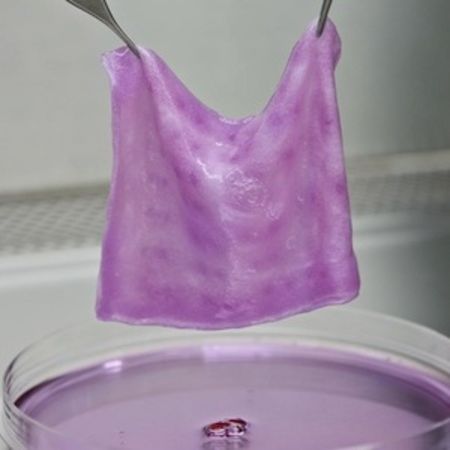Bandages used to treat burns are breeding grounds for microbes increasing the risk of death. Such lethal infections usually occur several months after a burn victim has been hospitalised. To complicate matters, the bacteria that cause the infections are increasingly becoming antibiotic-resistant.
To fight post-hospitalisation infections risks, Swiss researchers have worked on a biological bandage that speeds up the scarring process and, ultimately, prevents bacteria from multiplying.
During tests, the researchers focused on Pseudomonas aeruginosa, a bacterium that is the main cause of infections and death among serious burn victims.
Developed in partnership with École Polytechnique Fédérale de Lausanne (EPFL), the technology is based on a biodegradable bandage made of animal collagen and 'progenitor' cells that can multiply quickly.
First developed by Le Centre Hospitalier Universitaire Vaudois (CHUV) in 2005, these bandages hastened the healing process but did nothing to protect against microbes. The researchers have now demonstrated that by combining these biological bandages with special molecules called dendrimers, it would be possible to not only speed up healing but also to put a stop to infections.
Healing Bandage
The bandage consists of a strip of gauze made from collagen to which progenitor cells and dendrimers have been added. When the bandage is placed on a bacteria-infected site, some of the dendrimers migrate and destroy the microbes located in the direct vicinity of the bandage. Other dendrimers remain inside the bandage.
"Bandages are a favourable environment for bacterial growth," said Dominique Pioletti, the head of EPFL's Laboratory of Biomechanical Orthopaedics. "So some dendrimers have to remain in the bandage to destroy any intruders."
Death rate cuts
For burn specialists, the new bandage meets an urgent need."Currently, we have to take enormous precautions with our patients," said Lee Ann Laurent-Applegate, the head of the Regenerative Therapy Unit at CHUV). "The bandages, which sometimes cover most parts of the body, need to be changed every day for several months. Yet that does not stop infections. And we cannot prescribe antibiotics to all patients as a preventive measure for fear of making the bacteria more resistant. With the new bandages, rather than treating infections, we will be preventing them."
The new bandage is scheduled to be tested in Zurich before it will be used in clinics.
Source:
Image Credit:
EPFL























